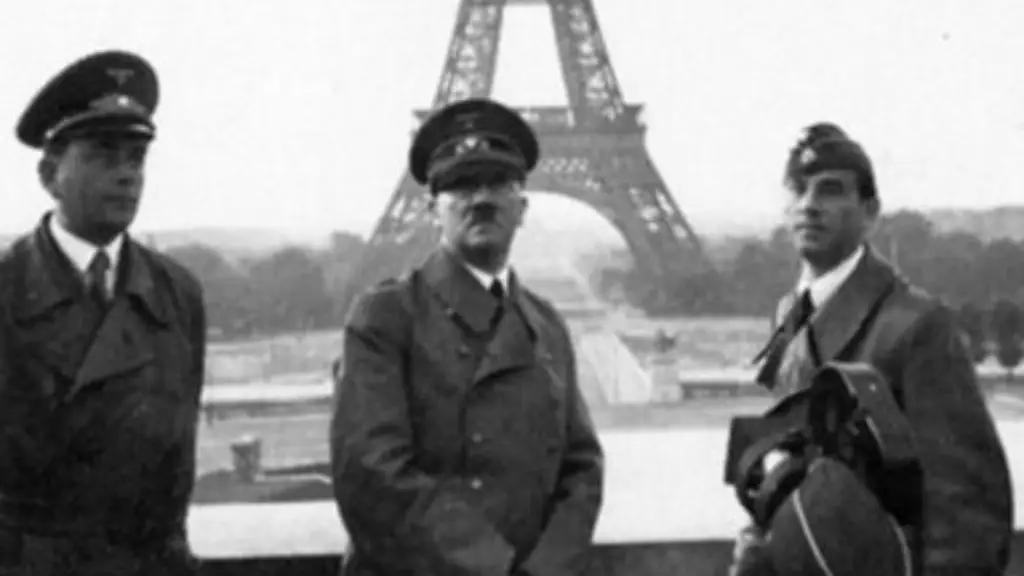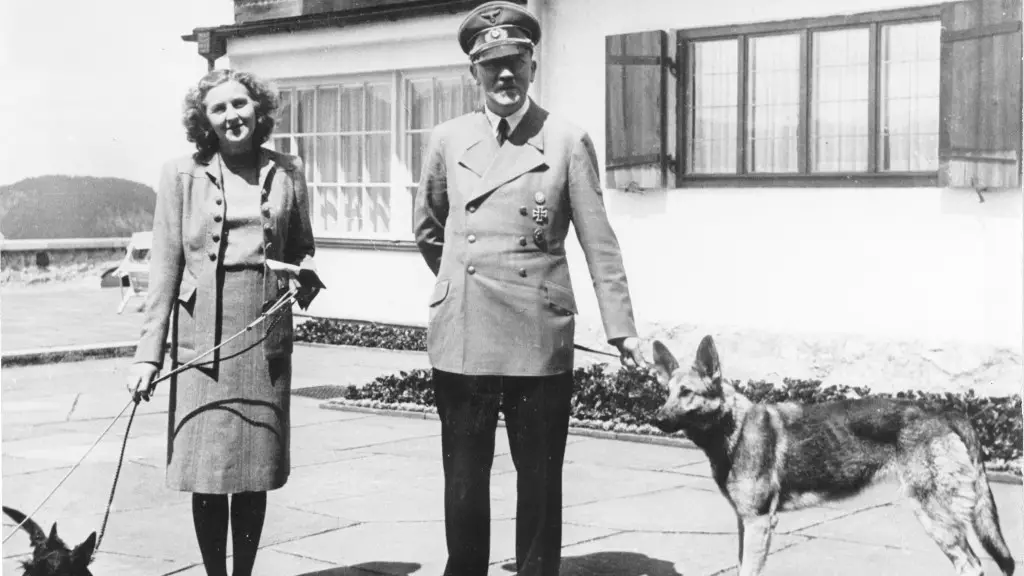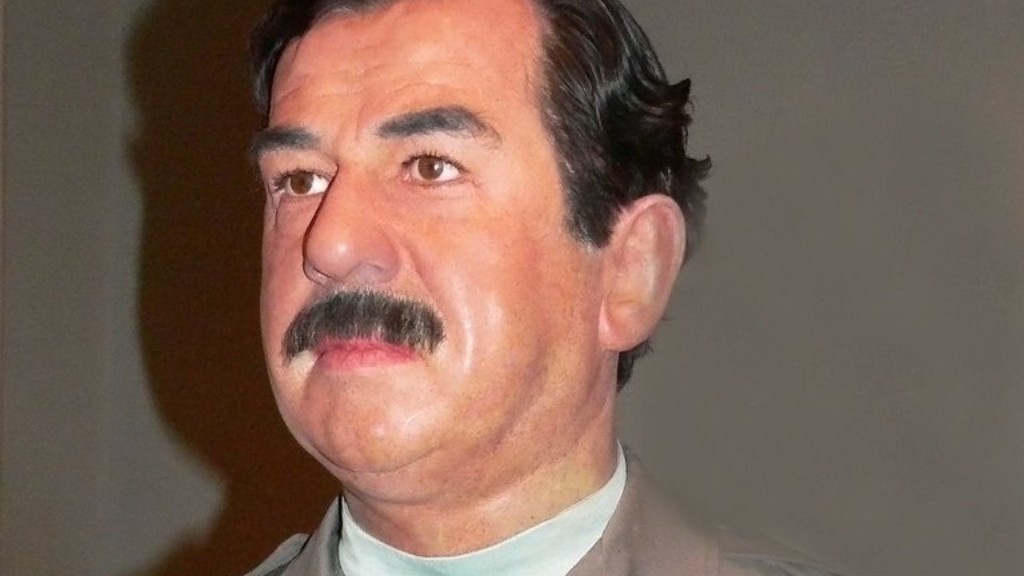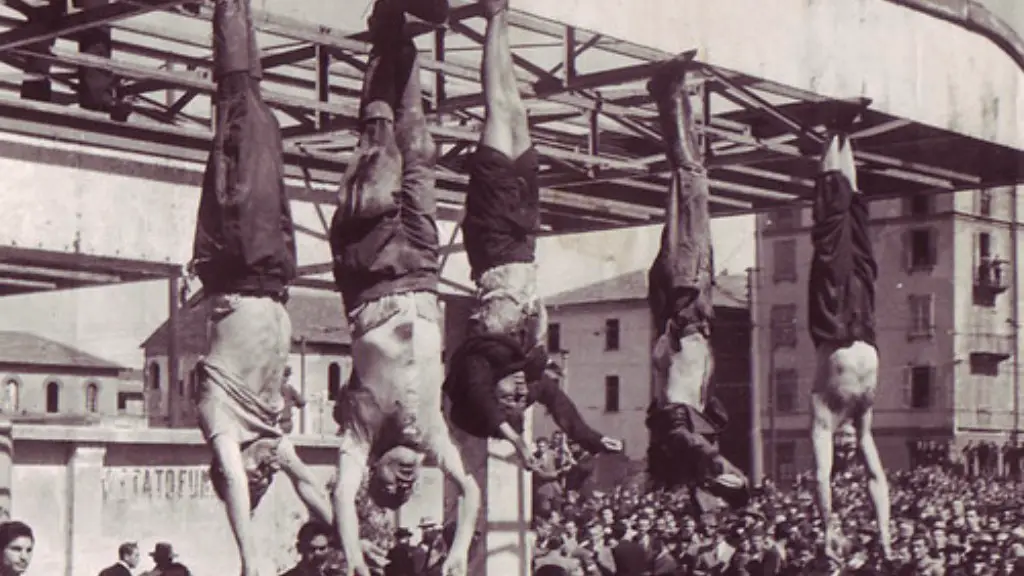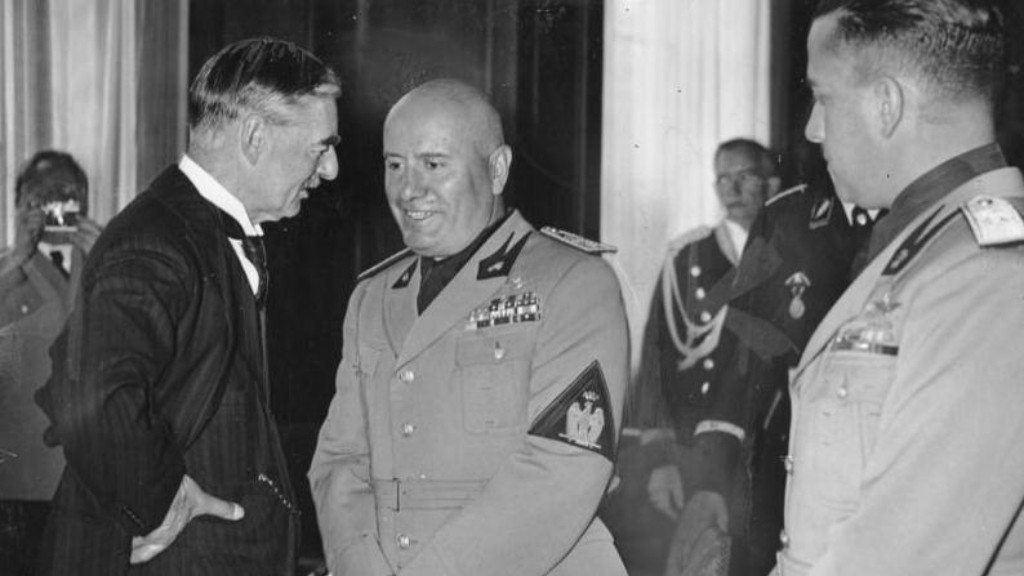Adolf Hitler was a German politician and leader of the Nazi Party who rose to power in Germany in the 1920s and 1930s. Hitler is widely regarded as one of the most evil and reviled figures in history, due to his extensive human rights abuses, mass murders, and war crimes. Hitler’s primary goal was the expansion of the German state and the dictatorship of his regime over all of Europe. He fostered racial hatred for non-Aryan races, which he believed to be inferior, as well as hatred for Jews, which he blamed for Germany’s ills.
Hitler firmly believed in national socialism, a doctrine which combined elements of socialism and nationalism. He argued that national pride and racial superiority should be nurtured, while social solidarity and the common good should be placed at the centre of a nation’s political system. Hitler saw the creation of a strong, authoritarian regime as the only viable option to achieve his ideas. He was also a strong advocate of militarism and viewed warfare as a necessary part of the state structure.
Hitler also held a number of deeply anti-Semitic beliefs and was determined to rid Europe of its Jewish population. He saw Jews as an inferior race, responsible for a wide range of social ills and economic inequality. Hitler used propaganda to promote his anti-Semitic views and to stoke the German population’s resentment towards Jews. He also implemented a wide range of oppressive anti-Semitic policies, including the systematic deportation of a population estimated at around 6 million people.
Hitler’s ideological views also fed into his fervent desire for German territorial expansion. He sought to unite all German-speaking people into a single country, and argued that her superior Aryan race was capable of conquering and effectively ruling the world. He pursued a policy of Lebensraum, in which the ethnic German population would be bolstered by forcibly resettling large numbers of people from newly acquired territories. Hitler’s foreign policy ambitions were ultimately disastrous, leading to the Second World War, the Holocaust and the death of millions.
Rise To Power And Ideology
Hitler rose to power in Germany through a combination of personal charisma, demagoguery, and a mastery of propaganda. He used his political speeches and rallies to appeal to the hatred, fear and anxiety of the German population. He portrayed himself as a strong, decisive leader – the only one who could save Germany from certain disaster. He successfully rallied the masses around him, and the Nazi Party soon became one of the most powerful political forces in Germany.
In terms of ideology, Hitler was a firm believer in the doctrine of racial purity and sought to create a nation of pure Aryans, with Jews and other so-called inferior races removed or persecuted. He believed in the concept of a total state – one which unified all aspects of life, from the economy to politics, under a single strong leader. He also advocated an aggressive foreign policy, seeking to expand Germany’s borders by claiming new lands and peoples for the Greater German Reich.
Anti-Semitism And Crimes Against Humanity
Hitler’s most notorious belief was that of anti-Semitism. He maintained that Jews were an inferior race, responsible for a range of social ills, and was determined to wipe out the European Jewish population entirely. He passed a range of oppressive anti-Semitic laws, including the Nuremberg Laws which stripped Jews of their citizenship and property, and passed the Final Solution, a plan to systematically exterminate the Jewish people. This plan involved the mass murder of millions of Jews in extermination camps, and ultimately led to the Holocaust.
Hitler’s views and actions led to a range of other crimes against humanity. He invaded and occupied a range of territories, driving out or murdering their populations. He passed a range of oppressive and draconian laws which denied basic rights to minorities and political dissidents, and he implemented a range of measures designed to plunder resources from the countries he invaded – including gold, art and other valuables.
Allied Response
Hitler’s actions, crimes and ideas were widely denounced and opposed by the Allied nations during the Second World War. Britain, France, the United States and the Soviet Union formed together as the Allied Nations in order to oppose Hitler and the Nazi regime. They saw Hitler’s expansionist goals as a major threat and sought to oppose them by waging economic warfare, propaganda campaigns and ultimately a full-scale military intervention.
During the war, the Allies slowly began to unravel the extent of Hitler’s atrocities and crimes against humanity. When the war drew to a close, Allied forces sought to bring him to justice and tried him for a range of offences in the Nuremberg trials. Hitler was found guilty of crimes against humanity, including murder and genocide, and was sentenced to death by hanging.
Legacy
Adolf Hitler’s legacy remains toxic to this day. He is widely seen as one of the most evil historical figures, due to the scale and brutality of the crimes he committed and orchestrated. His radical views and policies led to the deaths of millions and the destruction of countless cultures and peoples. He is seen as a warning of the dangers of unchecked authoritarianism and oppressive, racist ideologies.
Nevertheless, Hitler has retained a certain allure for a small number of neo-Nazis. They see him as a heroic figure and a martyr of the nationalist cause. These individuals venerate his views and seek to impose them on modern-day society. Fortunately, their numbers remain very small and isolated, and the majority of people around the world have rejected their beliefs.
Assessment Of Historical Significance
Adolf Hitler will always be remembered as one of the most reviled and despised figures in history. He was responsible for enslaving and massacring millions of people, and his actions led to one of the greatest catastrophes in human history. He will always be remembered as an example of how unchecked power can lead to horrific consequences and a reminder of how vigilant we must be in preventing such disasters from ever occurring again.
Hitler has also had a profound effect on the field of geopolitics and international relations. In particular, he is seen as a major factor in the creation of the Cold War and the subsequent arms race. He was also responsible for a radical shift in the foreign policy thinking of many countries, who became increasingly wary of unchecked power and expansionism.
Modern Relevance
Hitler’s legacy remains highly relevant to this day. His ideas and policies provide an important warning about the dangers of unchecked authoritarianism and racism, and his actions serve as a reminder that the world should strive for justice and the protection of basic human rights. Furthermore, his rise to power is a stark reminder of the danger of propaganda, and shows how easily leaders can exploit fear and distress in order to acquire power.
Hitler’s legacy also serves as an example of how easily power can be abused and how quickly it can spiral out of control. His actions show that clear checks and balances are needed in order to protect against the misuse of power, and that governments must always be held to account by their citizens.
Conclusion
Adolf Hitler will always be remembered as one of the most reviled figures in history, due to the horrific crimes he committed and the mass destruction he caused. The lessons of his legacy – including the dangers of unchecked power, the threats of racial hatred, and the need for democracy and justice – remain highly relevant to this day, and serve as a reminder of the need for vigilance and awareness in order to prevent such disasters from ever occurring again.
